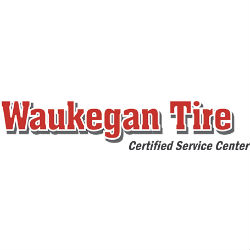What is the difference between winter tires and all-season tires?
This is a common question raised by drivers when the winter weather arrives and drivers become painfully aware of the condition of their tires. When you look at the difference of winter vs all-season tires, it doesn’t appear to be a huge difference. Both have tread designed for maximum contact with road and the sipes (grooves) help with water evacuation. The most important difference is the technology behind what tires are made of. Yes, the tread pattern is important to give you grip in snow, slush, and freezing rain but the difference in winter tires is the compound in the rubber for cold weather. Winter tires have additives to the rubber to keep the rubber flexible so it grips the road and are labeled with a symbol of a mountain and snowflake designating that tire is certified for severe winter service. All-season tires do not have additives and therefore the rubber hardens as temps drop below 42 degrees Fahrenheit.
The additives are the main reason rubber in winter tires will soften and wear out faster than an all-season so it is recommended that you have winter tires installed for when the temperatures regularly dip below 42F and replaced during summer heat. The all-season tires perform well in temperatures above 42F and are designed with molded sipes in the tread to help evacuate water so they are a great choice for spring, summer and fall and in some warmer climates even winter. Due to our winter weather temps, a winter tire is recommended to give you the best traction on the road and is effective in shortening stopping distance. Winter tires tend to cost more than all season but when you compare the safety factor of winter tires, the price difference is minor. The price is another reason why you should preserve the life of the winter tire and switch to an all-season or performance tire for summer driving.
